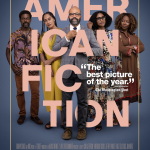When his husband unexpectedly dies, Marc’s world shatters, sending him and his two best friends on a soul-searching trip to Paris that reveals some hard truths they each needed to face.
Chuck says:
Certainly, there is no lack of sincerity in Dan Levy’s “Good Grief,” a well-meaning examination of one man’s attempt to come to grips with the sudden death of his husband. Heartfelt and, at times effective, the actor’s directorial debut is brought low by ponderous pacing and a grating sense of self-importance in each of the core characters. To be sure, the premise requires a degree of introspection on the part of the protagonist, but the collective turmoil of his friends and associates, which is spewed again and again and again, comes to resemble a self-pity group therapy session that ultimately becomes intolerable.
All seems right in the world of Marc and Oliver (Levy and Luke Evans). Long-time marrieds, they are living the life many of us dream of. Oliver is the author of a series of “Harry Potter”-like books, for which Marc provides the illustrations. Having more money and friends than they know what to do with, while enjoying professional success, the couple are seemingly living a life of wedded bliss.
However, all is not as it seems. When Oliver is tragically killed in a Christmas Eve car accident, Marc’s world is shattered. Reeling, he looks to his close friends Thomas (Hamesh Patel) and Sophie (Ruth Negga), for support, which they willingly supply. Yet, just when Marc seems to be on the road to recovery, he makes a startling discovery. Seems Oliver was the owner of a Paris apartment, and it soon becomes obvious he was sharing it with someone other than his husband. In a fit of pique, he takes Thomas and Sophie with him to the City of Lights to check out the previous unknown digs and frivolously spend some of his ex’s money. A good plan on paper, it jumps the rails when Oliver’s lover Luca (Mehdi Baki) shows up and crashes their party.
It’s to be expected that any examination of grief and mourning will likely be a dour exercise, and laughs will be in short supply. However, it doesn’t have to be executed at the lugubrious pace Levy employs here. The film feels much longer than it is, the many – and I mean, MANY- introspective conversations that occur meander and go on far too long. If you’ve ever been in a conversation with a friend and wind-up feigning concern while wondering if their rambling will ever end, then you get a sense of what sitting through this film is like.
2 Stars
Not helping matters is the unappealing nature of the characters. You cut Marc some slack because of all he’s been through, but the trials of Thomas and Sophie are another matter. The former constantly laments his about inability to find a suitable partner, subtly pining for Marc, who he once dated, finding fault in every perspective boyfriend that comes his way. Meanwhile, Sophie is a self-indulgent mess, wallowing in her self-destructive behavior and basking in the attention it brings her. Both prove insufferable, their company a trial for the viewer once the first act draws to a close.
In the end, Marc’s life seems to be on a well-earned upward swing, yet the journey to this moment is far too taxing. A product of the Victimhood Culture, the film is an exercise in self-pity, one in which we are tirelessly bludgeoned with the troubles of its characters until we feel compelled to give them our attention whether they deserve it or not. Like those loved ones we feel obligated to listen to and care for, sitting through “Grief” proves to be a one-sided affair that leaves you drained and wondering just why you put up with it.




